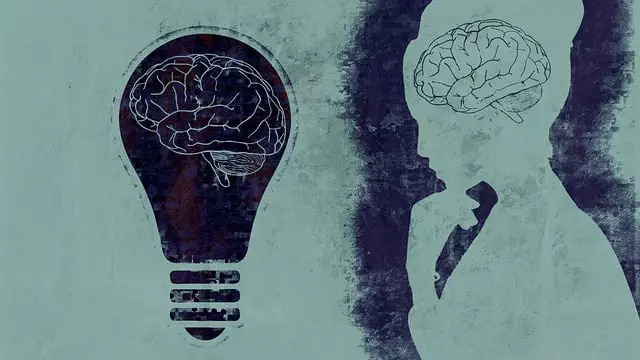Kaiser Permanente Behavioral Health Services in Lone Tree prioritizes emotional intelligence (EI) as a foundational aspect of patient care and provider relationships. Through programs like Crisis Intervention, Emotional Well-being Promotion, and Stress Reduction, they equip individuals with skills to manage emotions and navigate life's challenges, fostering understanding, compassion, and positive thinking. Strategic listening, self-awareness, and empathy form the core of their approach, strengthening client-provider relationships, reducing mental illness stigma, and enhancing overall well-being within the community, making Lone Tree a leading example in empathetic behavioral healthcare services.
Emotional intelligence (EI) is a cornerstone of effective communication and mental well-being, particularly in healthcare settings like Kaiser Permanente Behavioral Health Services Lone Tree. This article explores the key components of EI development, focusing on self-awareness, empathy, and strategic listening. By understanding these aspects, individuals can enhance their personal growth and build stronger relationships within the unique environment of Lone Tree’s behavioral health services.
- Understanding Emotional Intelligence: The Foundation of Effective Communication at Kaiser Permanente Behavioral Health Services Lone Tree
- The Role of Self-Awareness in Enhancing Emotional Intelligence and Its Impact on Personal Growth
- Developing Empathy: A Key Component to Building Strong Relationships in Lone Tree's Behavioral Health Setting
- Strategic Listening and Its Influence on Emotional Intelligence: Tips for Practice at Kaiser Permanente Behavioral Health Services
Understanding Emotional Intelligence: The Foundation of Effective Communication at Kaiser Permanente Behavioral Health Services Lone Tree

At Kaiser Permanente Behavioral Health Services Lone Tree, understanding emotional intelligence forms the bedrock of effective communication. Emotional intelligence (EI) refers to the ability to recognize and manage one’s own emotions, as well as understand and empathize with the emotions of others. This is crucial in healthcare settings where strong EI can enhance patient care and provider relationships. By fostering a culture of empathy and emotional awareness, Kaiser Permanente Behavioral Health Services Lone Tree ensures that every interaction is grounded in understanding and compassion.
Through various programs and services, the organization provides not only Crisis Intervention Guidance but also employs Emotional Well-being Promotion Techniques to equip individuals with the skills needed to navigate life’s challenges. Additionally, Stress Reduction Methods are integrated into their approach, recognizing that managing stress is integral to maintaining emotional intelligence. This holistic strategy contributes to a healthier, more supportive environment for both patients and healthcare providers alike.
The Role of Self-Awareness in Enhancing Emotional Intelligence and Its Impact on Personal Growth

Self-awareness is a cornerstone of emotional intelligence, enabling individuals to recognize and understand their emotions as well as those of others. This fundamental aspect, offered through Kaiser Permanente behavioral health services Lone Tree, empowers people to gain profound insights into their thought processes and triggers. By cultivating self-awareness, one can begin to navigate life’s challenges with greater clarity and purpose. It fosters the ability to step back from reactive responses, promoting thoughtful actions aligned with personal values.
This heightened sense of self-awareness significantly contributes to personal growth by encouraging individuals to embrace Compassion Cultivation Practices and Self-Care Practices. It allows for the development of Positive Thinking, where emotions are not suppressed but rather managed constructively. This transformation has profound implications, leading to better relationships, improved decision-making, and enhanced overall well-being—all achievable through the powerful tool of self-awareness.
Developing Empathy: A Key Component to Building Strong Relationships in Lone Tree's Behavioral Health Setting

In the heart of Lone Tree, Kaiser Permanente’s behavioral health services stand as a beacon of hope for those navigating mental illness. A cornerstone of this support system is the cultivation of empathy—a powerful tool that strengthens relationships and fosters understanding in this sensitive setting. Empathy isn’t just a skill; it’s a bridge that connects individuals, breaking down barriers and promoting healing. By putting oneself in another’s shoes, healthcare professionals and clients alike can develop deeper connections, fostering an environment where vulnerability is met with compassion.
This empathetic approach is crucial in reducing the Mental Illness Stigma Reduction Efforts, as it encourages open dialogue about anxiety relief and other mental health concerns. Public Awareness Campaigns Development initiatives within Kaiser Permanente behavioral health services recognize the impact of empathy on community engagement. Through this lens, Lone Tree’s behavioral health setting becomes not just a place for treatment but a space where empathy transforms lives, one connection at a time.
Strategic Listening and Its Influence on Emotional Intelligence: Tips for Practice at Kaiser Permanente Behavioral Health Services

At Kaiser Permanente Behavioral Health Services in Lone Tree, strategic listening is a cornerstone of emotional intelligence development. It involves active engagement with speakers, not just hearing their words but understanding their emotions and perspectives as well. This skill enhances coping skills development by fostering deeper connections and empathy among individuals. By practicing attentive listening, patients can build inner strength, enabling them to navigate challenging situations with resilience.
To hone strategic listening at Kaiser Permanente Behavioral Health Services, individuals are encouraged to focus on non-verbal cues, ask clarifying questions, and reflect on the speaker’s feelings. These practices not only improve emotional intelligence but also contribute to a more supportive therapeutic environment where patients feel heard, understood, and valued. This holistic approach empowers them to strengthen their emotional resilience and enhance their overall well-being.
Emotional intelligence, a cornerstone of effective communication at Kaiser Permanente behavioral health services Lone Tree, is multifaceted in its benefits. By cultivating self-awareness, developing empathy, and mastering strategic listening, individuals can significantly enhance their personal growth and foster stronger relationships. These skills, when implemented, have the potential to revolutionize interactions within the behavioral health setting and beyond, creating a more supportive and understanding environment for all involved.






